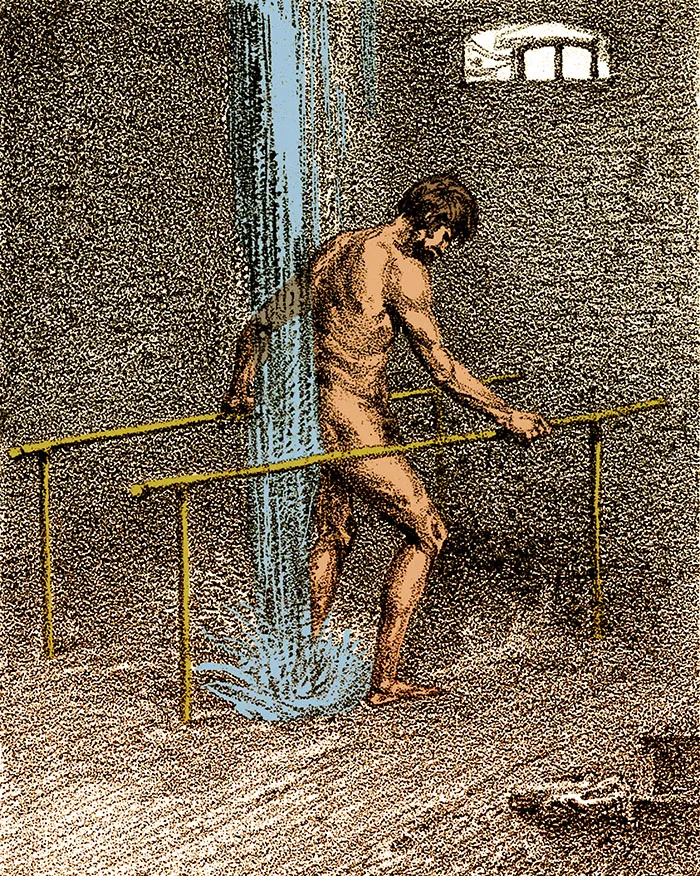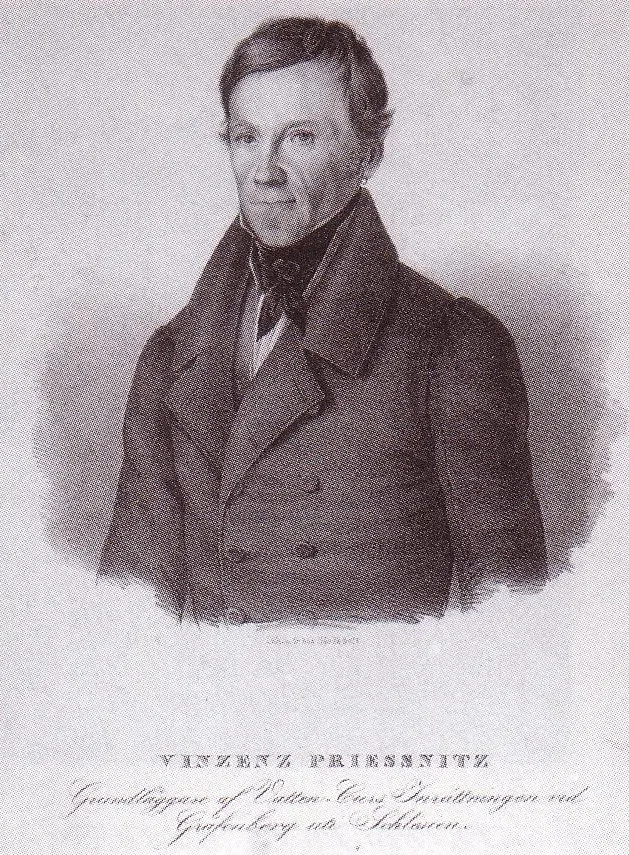With a few nations in Central Europe having their language quirks (think Hungarians sounding strange to virtually everyone around or Lithuanians speaking close to Sanskrit), there are a few words in Polish that sound strange to their neighbors. (*Some, such as the word for tea, may be shared with Baltic nations.)
And one word that is unique to Poland is the one for a shower: prysznic. Now, if you know anything about the shushing sound of the language, you can easily hear a German name sounding in it. And you’re right – that’s Polonized name of Silesian Vincenz Priessnitz, who introduced the invention – but in a far less pleasant form than we know it today and in a peculiarly controversial manner.
Vincent Priessnitz – the inventor of the shower
And that’s all because Priessnitz was unconventional himself. You can think about him as a doctor, though he was never close to any medical education. Born in 1799 (in the world without showers!), he soon came to the idea that cold water is a key to health – and a cheap one to that.


This was an important factor: Vincent grew up poor, with five siblings and a blind father who couldn’t work on the family farm. Priessnitz, therefore, left school (while still illiterate). As a teenager, he fell from a horse and got his ribs broken. Having no money for curation, he took example from roebucks he saw cooling their wounds in the stream. For a year, he bandaged a cold compress to his chest and drank a lot of water. With both these methods, he found out that water worked miracles.
Soon, already as a teenager, he started applying cold bandages and baths to cure animals, and gradually also people. His fame grew year by year. People would soon pilgrim to his farm, which allowed him to experiment more and introduce more methods to his ideas. It would also begin soon transforming his farm into something close to a spa or a water treatment facility.
And this is where it all began – in the Silesian town of Gräfenberg, in the Austrian part of Silesia. Now the town is called Lázně Jeseník (Lázně, bath, remained in his name) and belongs to Czechia.
SPA: Sanitas per aquam (literally.)
Technically, none of Priessnitz’s ideas were new. After all, it’s easy to connect water with health; even the Western medicine protoplast Hippocrates did just that. But Preissnitz, returning to the discipline’s roots, discarded much of the Western medicine of his time – herbs and early drugs, advising moderation. His idea was that to fight diseases, a body needs balance and moderation – which can be achieved by cold water treatments, fast exercises, a raw vegetable diet, and water – lots of it.
At some point in his life, Vincent Priessnitz achieved fame for his balneological endeavors. He was also widely criticized for not having any medical degree – but over time, these charges weakened as numerous inspections showed that he used only water to cure diseases.
One of the methods was to pour cold water from high above – and this one innovation in a long line of innovations became famous. After some time, Priessnitz’s name became a household word for water treatment – sanitas per aquam, or health through water, as it is usually called. But the idea of a shower became popular as a way to maintain health and, later – for hygienic purposes.
The balneology prophet died at 51, oh irony, complaining of cold on the last day of his life. He was by then recognized as a medic (a title awarded even by Austrian Emperor Franz Carl), famed by the artists, rich and successful.
To this day, his name is a household word in two ways. One – as the creator of “Preissnitz treatments” and “Preissnitz facilities” and the other, only in Poland, as the inventor of prysznic. And while balneology is hardly The One among different therapies today, Vincent’s invention really changed our lives.
See Also: The Invention of the Torpedo







